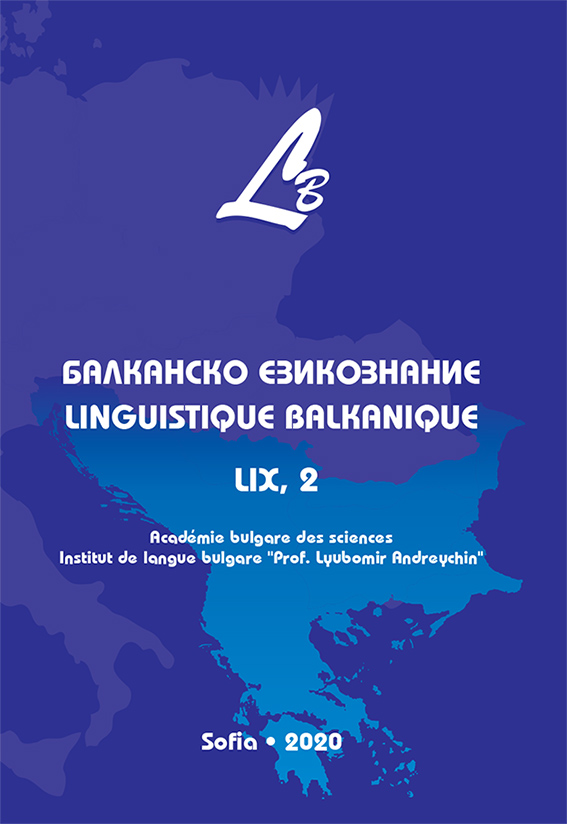МОСКОВСКАЯ ШКОЛА БАЛКАНСКОЙ ЛИНГВИСТИКИ: ОСНОВНЫЕ ВЕХИ
THE MILESTONES OF THE MOSCOW SCHOOL OF BALKAN LINGUISTICS
Author(s): Maksim Makartsev, Irina Aleksandrovna Sedakova, Tatjana CivjanSubject(s): Language studies, Language and Literature Studies, Theoretical Linguistics, Phonetics / Phonology, Morphology, Syntax, Lexis, Semantics, Historical Linguistics, Comparative Linguistics, South Slavic Languages
Published by: Институт за български език „Проф. Любомир Андрейчин“, Българска академия на науките
Keywords: Balkan linguistics; history of linguistics; Balkan Sprachbund; Institute of Slavic Studies; Centre of Linguocultural Research “Balcanica”
Summary/Abstract: The Moscow school of Balkan linguistics originated in the Institute of Slavic Studies (Russian Academy of Sciences) in the 1960s. It brought together a number of researchers who combined their interest in Balkan synchrony with their deep expertise in diachrony as well as broad competence in linguistics, semiotics, literature, folklore, and ethnology. These researchers’ contributions have been published in periodicals established by the Institute, including “Slavic and Balkan Folklore” (Slavyanskiy i balkanskiy fol’klor), “Slavic and Balkan Linguistics” (Slavyanskoe i balkanskoe jazykoznanie), “Series Balcanica” (Balkanskie chteniya), “Centre of Linguocultural Research “Balcanica”. Proceedings of Round Tables” (Materialy kruglogo stola CLI “Balcanica”), as well as in a number of monographs and collected volumes. Since 2008, the main unit within the Institute organizing the events and publications in the field of Balkan linguistics is the Centre of Linguocultural Research “Balcanica”. The central concept of the school is the so-called “mediate language” (“jazyk-posrednik”), an abstract system of symbols that 1) facilitates the most efficient description of any given Balkan language within the framework of all other Balkan languages and 2) provides a set of cost-effective algorithms to transform sentences (or texts) of a Balkan language into any other Balkan language. In the first part of this study the authors analyze the main publications and conferences within the framework of the Moscow school of Balkan linguistics during the last 60 years, focusing mostly on the problems of grammar typology and highlighting the current trends in the field. We specifically dwell upon contributions in the field of verbal and nominal systems of the Balkan languages, functional words, and lexicon, as well as outline the current trends that define the development of Balkan studies in the first twenty years of the 21st century.
Journal: Балканско езикознание / Linguistique balkanique
- Issue Year: 59/2020
- Issue No: 2
- Page Range: 245-264
- Page Count: 20
- Language: Russian
- Content File-PDF

